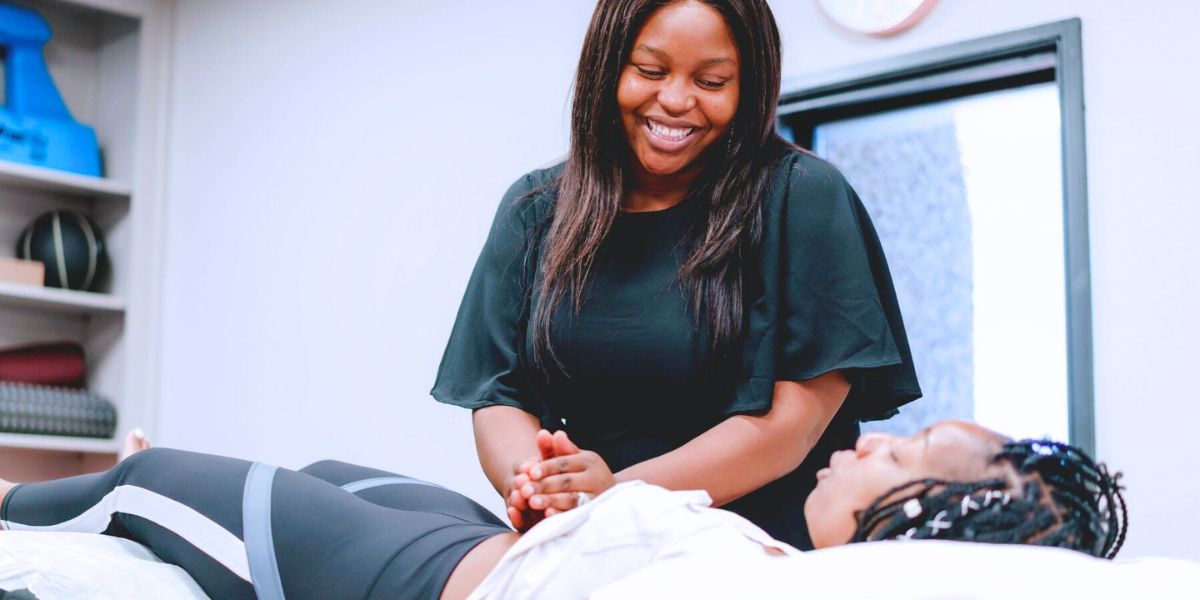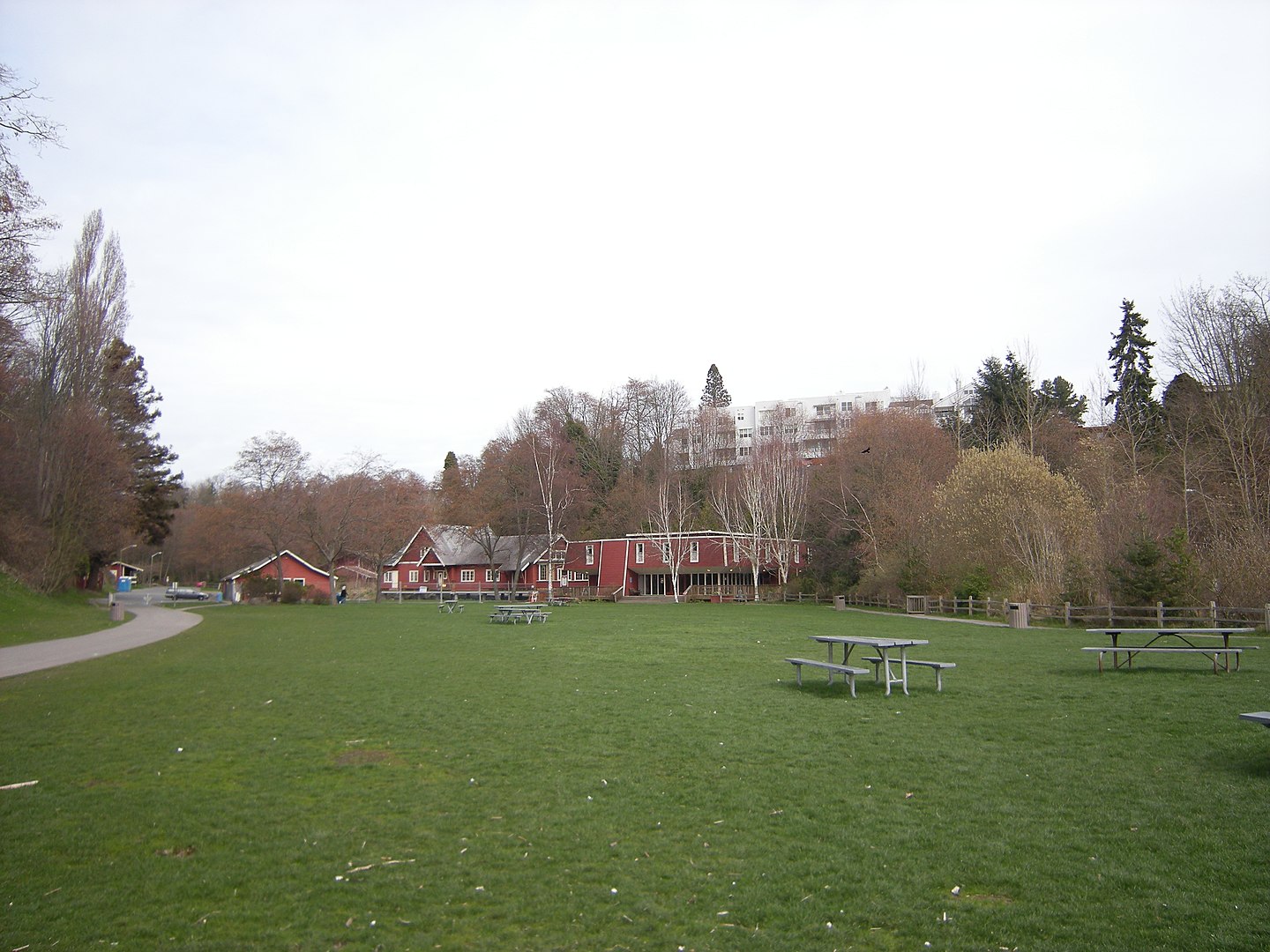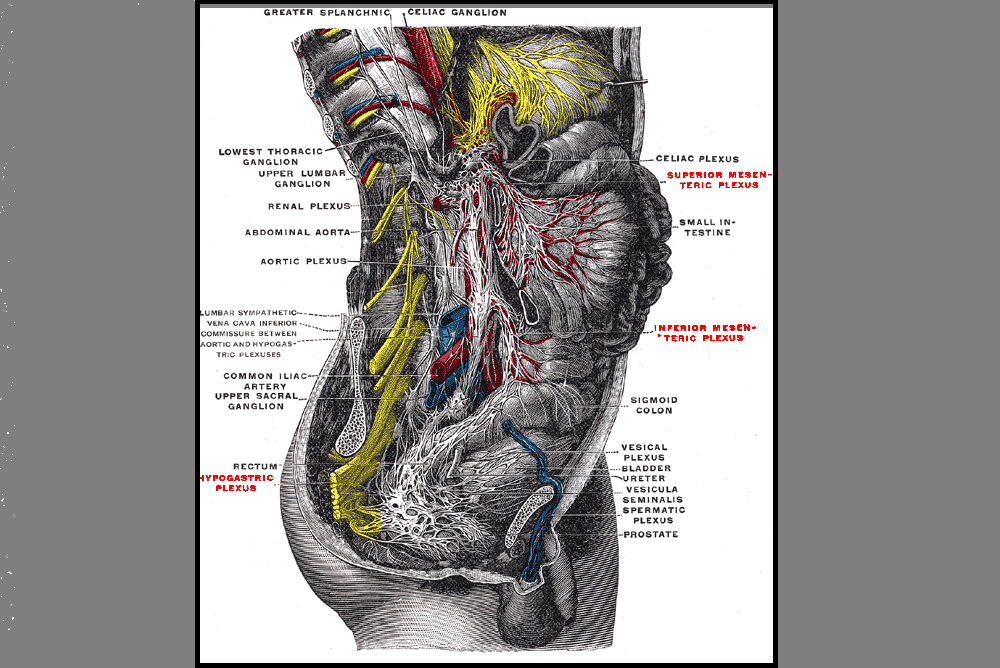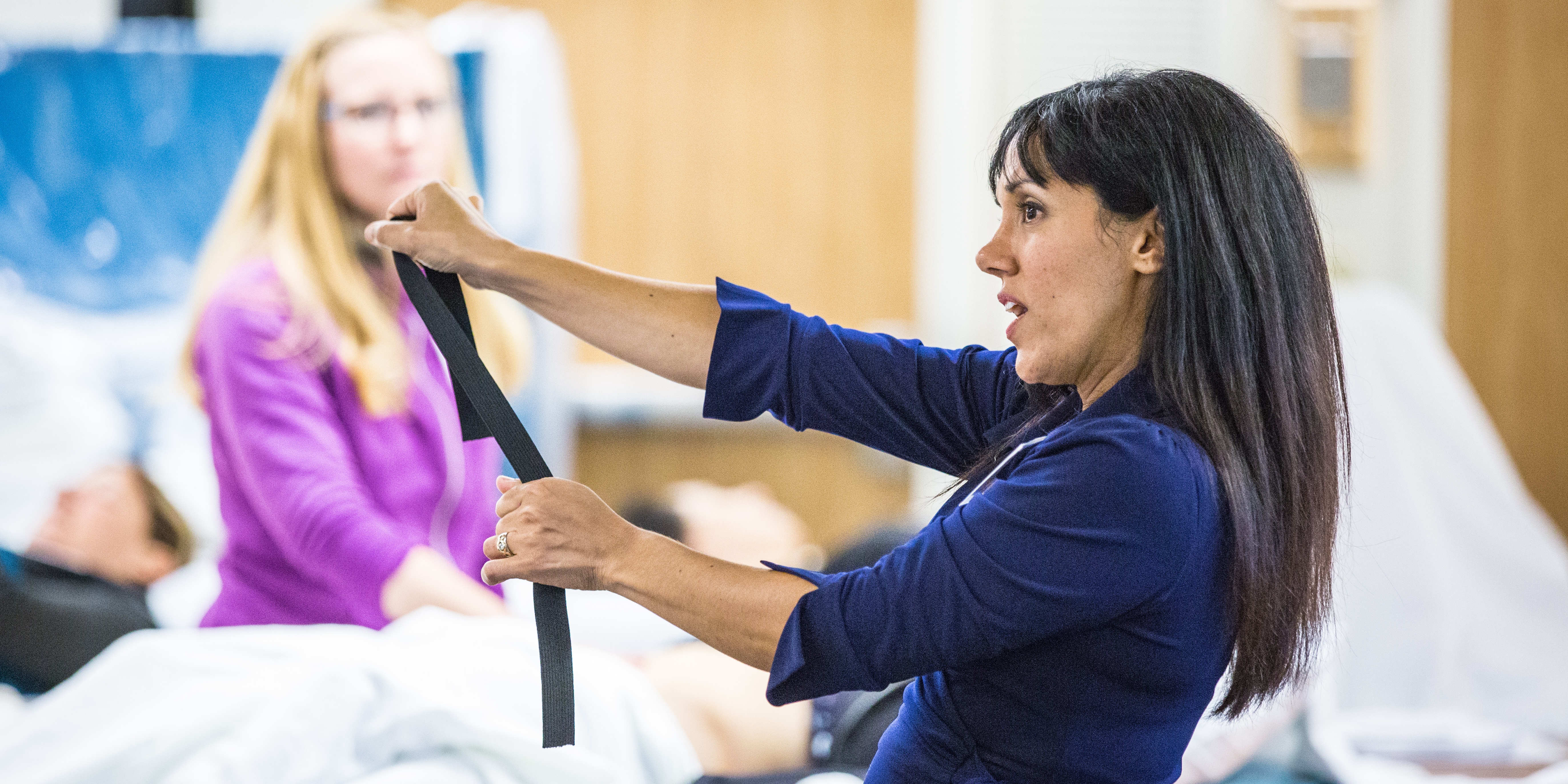If you area clinic owner, are in a management or leadership position, one of your jobs is making sure your therapists are using best practices. This can be a challenge when best practices are continually being researched and discussed, and when systematic reviews continue to tell us that pelvic rehabilitation research lacks homogeneity and enough high-level evidence to make convincing arguments about interventions. In the absence of this, we can still integrate recommendations from clinical practice guidelines and from best practice statements. The American Physical Therapy Association's (APTA) Section on Women's Health (SOWH) is participating in the APTA's initiative to develop clinical practice guidelines. For current guidelines, check out their page here. To see which guidelines are in development at the APTA, click here.
The American Urological Association (AUA) has also developed practice guidelines, including the Guideline on the Diagnosis and Treatment of Interstitial Cystitis/Bladder Pain Syndrome (IC/PBS). Within this guideline, the first line treatments are listed as general relaxation/stress management, pain management, patient education, and self-care/behavioral modification. Second-line treatments include "appropriate manual physical therapy techniques", oral medications, bladder medications (administered inside the bladder), and pain management. What is very interesting about this guideline is that the authors define what types of manual therapy approaches are appropriate, and these include techniques that resolve muscle tenderness, lengthen shortened muscles, release painful scars or other connective tissue restrictions. The guidelines also define who should be working with patients who have IC/PBS and pelvic muscle tenderness: "appropriately trained clinicians". Very importantly, the authors state that pelvic floor strengthening exercises should be avoided.
Many diagnoses that live under the umbrella of "chronic pelvic pain" have similar symptoms, confounding the differential diagnosis and development of a treatment pathway. Dr. Charles Butrick, in an article published in 2007, suggested that gynecologists "…be alert to…interstitial cystitis in patients who present with chronic pelvic pain typical of endometriosis." The concurrent conditions of bladder pain syndrome (BPS) and endometriosis have been described as "evil twins syndrome" in the realm of chronic pelvic pain. Bladder pain syndrome. also known as Interstitial Cystitis (IC), is a condition commonly associated with pelvic pain, bladder pressure, and urinary dysfunction such as urgency and frequency. Endometriosis can also cause or contribute to pelvic pain, and a variety of pelvic dysfunctions including bowel, bladder, or sexual dysfunction.
A study published in the International Journal of Surgery reported on the prevalence of these two conditions. Utilizing a systematic review approach, the authors located articles reporting on the prevalence of bladder pain syndrome and endometriosis in women with chronic pelvic pain. Nine observational studies were included, and the range of endometriosis diagnosis ranged from 11%-97%, with a mean prevalence of 61%. The prevalence of endometriosis ranged from 28%-93% with a mean prevalence of 70%. The large variation in these rates were explained as potentially being due to the variations in study quality and sample selection. (The authors point out that the highest rates of prevalence for BPS and endometriosis were noted in the patient groups recruited from specialist clinics and from lists of patients from operating lists.) The study concludes that in women who present with chronic pelvic pain (CPP), screening for bladder pain syndrome is important so that appropriate treatment can be directed to all issues.
Even after teaching for a couple of decades, both in graduate level courses and in continuing education settings (live and online), I am humbled by all there is to learn and relearn about how to teach well. We all teach every day, regardless of what setting or roles we work in, and are required to share our thoughts and knowledge with respect, equanimity, and non-judgement. After teaching a course last month, I received feedback about an important topic that was not clearly addressed from an instructional or clinical standpoint, and the participant who brought it to my attention agreed to share her experience so that we as pelvic rehab providers can do a better job of addressing the issue when needed. The following post was written by Erin B. after I encouraged her to share her own thoughts about the issue.
"Having recently participated in the PF1 class after several years out of the classroom-style of continuing education, I made a few observations I felt compelled to share. (I do want to preface this with the fact that I am fully aware that my own insecurities play a role in my experiences and I recognize that they may alter my judgment of the situation.)
Today the Pelvic Rehab Report presents a conversation with Dr. Kimberlee Sullivan, DPT. Kimberlee was kind enough to share her thoughts on the importance of pelvic rehab and her experiences in the field.
Tell us about your clinical practice.
Sullivan Physical Therapy is an outpatient private practice physical therapy clinic in Austin, Texas that specializes in women's and men's health. We have seven physical therapists who evaluate and treat pelvic floor dysfunction, pre and postpartum, pediatric bladder and bowel dysfunction, and lymphedema. Our practice takes a full body approach that looks at a person from different aspects to analyze how various factors in their life may be contributing to their symptoms. We also strive to be an integrated health care practice that communicates well with both the patient and their referring physician or multiple practitioners. The physical therapists work closely with the patient's entire medical team in order to provide the best care.
Today we are happy to share an interview with Blair Green, PT! Blair brings her experience as both a practitioner and a clinic owner to the field of pelvic rehabilitation, and you can check out her insights below.
Tell us about your clinical practice
I am an owner of One on One Physical Therapy, in Atlanta, GA. My patient population is primarily patients with pelvic pain of varying degrees. I blend my skills and knowledge of pelvic health with orthopedic manual therapy and I am able to provide a comprehensive approach to treating these patients. I also work closely with postpartum women for rehabilitation following childbirth, primarily in an orthopedic sense. I like to work with women who experience diastasis recti following pregnancy and who want to return to an active lifestyle after having children. One other area that interests me is the relationship between autoimmune disorders / endocrine function / pelvic pain. I hope to expand on this in the future.
The Pelvic Rehab Report recently caught up with Katie Woolf, DPT, in order to hear a bit about her recent experience at H&W's Pudendal Neuralgia course in Salt Lake City. The Pudendal Neuralgia course was developed and is instructed by faculty members Loretta Robertson and Tracy Sher. Katie had this to say about her experience in the course:
I recently attended the Pudendal Neuralgia course in Salt Lake City, Ut. It was a fabulous experience! The instructors were Tracy and Lorretta. They are such darling ladies. They have a contagious passion and endless knowledge of pelvic rehabilitation. This was my second Herman and Wallace course and I have never been disappointed. The facilities for the course were perfect as well.
This course opened my eyes to pelvic pain, pudendal neuralgia (PN), pelvic dysfunction, and how to recognize and manage it. The instructors gave an evidence based practice review and personal testimony of PN and how they treat patients with PN. The instructors were knowledgeable about anatomy, treatment interventions, and surgical interventions for to PN. Most of all they made it a fun course.
Update: Please note that this course is now only offered online through the instructor's website. For more information visit https://pelvicpainrelief.com/laser/
Herman & Wallace is announcing a new course on laser therapy for pelvic pain! The Pelvic Rehab Report caught up with the instructor, Isa Herrera.
Laser Therapy For Female Pelvic Pain was developed by Isa Herrera MSPT, CSCS for Herman and Wallace specifically for women’s health clinicians. Ms. Herrera is the author of 4 books, including the breakthrough book, Ending Female Pain, A Woman’s Manual, now in its 2nd Edition. Ms. Herrera has appeared on several national TV and radios shows including on MTV True Life, The Regis and Kelly Show and NBC’s Today Show. She lectures nationally on the topic of women’s health and has been a passionate advocate about pelvic health for over 10 years.
Patients who suffer severe bladder damage or bladder disease such as invasive cancer may have the entire bladder removed in a cystectomy procedure. Once the bladder is removed, a surgeon can use a portion of the patient's ileum (the final part of the small intestines) or other part of the intestine to create a pouch or reservoir to hold urine. This procedure can be done using an open surgical approach or a laparoscopic approach. Once this new pouch is attached to the ureters and to the urethra, the "new bladder" can fill and stretch to accommodate the urine. As the neobladder cannot contract, a person will use abdominal muscle contractions along with pelvic floor relaxation to empty. If a person cannot empty the bladder adequately, a catheter may need to be utilized. (A prior blog post reported on potential complications of and resources for learning about neobladder surgery.)
During the recovery from surgery, patients will wear a catheter for a few weeks while the tissues heal. Once the catheter has been removed, patients may be instructed to urinate every 2 hours, both during the day and at night. Because patients will not have the same neurological supply to alert them of bladder filling, it will be necessary to void on a timed schedule. The time between voids can be lengthened to every 3-4 hours. Night time emptying may still occur up to two times/evening. Patient recommendations following the procedure may include that patients drink plenty of fluids, eat a healthy diet, and gradually return to normal activities. Adequate fluid is important in helping to flush mucous that is in the urine. This mucous is caused by the bowel tissue used to create the neobladder, and will reduce over time.
Urinary leakage is more common at night in patients who have had the procedure, and this often improves over a period of time, even a year or two after the surgery. As pelvic rehabilitation providers, we may be offering education about healthy diet and fluid intake, pelvic and abdominal muscle health and coordination, function retraining and instruction in return to activities. In addition to having gone through a major surgical procedure, patients may also have experienced a period of radiation, other treatments, or debility that may limit their activity levels. The Pelvic Rehabilitation Institute is pleased to offer courses by faculty member Michelle Lyons in Oncology and the Pelvic Floor, Part A: Female Reproductive and Gynecologic Cancers, and Part B: Male Reproductive, Bladder, and Colorectal Cancers. If you would like to explore pelvic rehabilitation in relation to oncology issues, there is still time to register for the Part A course taking place in Torrance, California in May! If you would like to host either of these courses at your facility, let us know!
In our weekly feature section, Pelvic Rehab Report is proud to present this interview with Herman & Wallace instructor Michelle Lyons, PT, MISCP
How did you get started in pelvic rehab?
Like a lot of therapists whom I talk to when I travel and teach, it was after the birth of my daughter, when I realized what an under-served population postpartum women are! After childbirth, the focus almost entirely shifts to the baby, and poor old Mum is left, by and large, to fend for herself. Now, more than ever, when we are looking at shorter hospital stays and the lack of maternity leave, we as pelvic therapists need to grow awareness of the needs of women throughout the life cycle and what we have to offer. Pelvic rehab is a high touch, low risk, cost effective and highly effective (yet under used) treatment option. I am passionate about spreading the Pelvic Rehab Gospel!
In our weekly feature section, Pelvic Rehab Report is proud to present this interview with Herman & Wallace instructor Jennafer Vande Vegte, MSPT, BCB-PMD, PRPC
How did you get started in pelvic rehab?
A supervisor of mine suggested that I go to a course and develop a pelvic floor program. I thought she was nuts. As a late twenty-something, I wanted to work with athletes. Finally she convinced me to go. Imagine my surprise when I felt like a duck in the water in the Pelvic Floor Level 1 class.







































